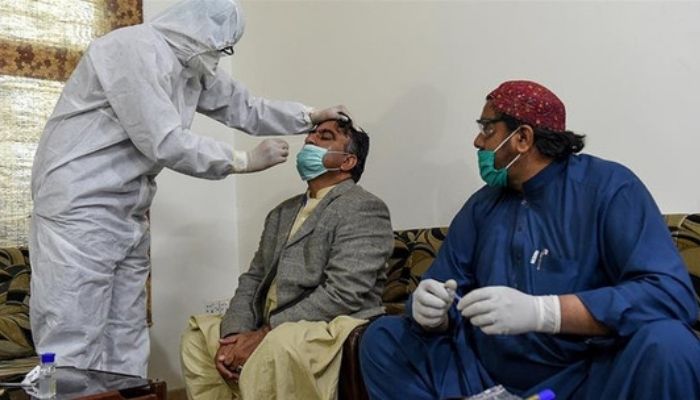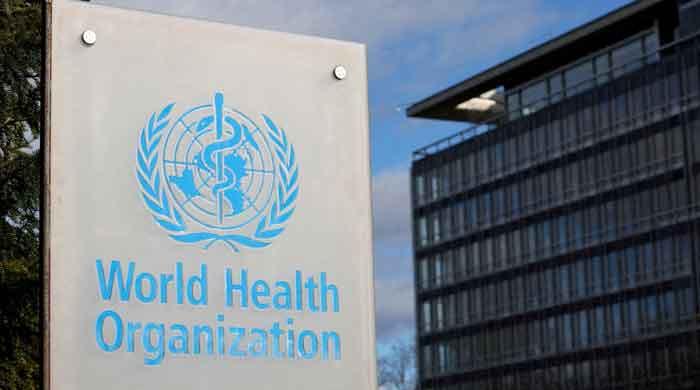COVID-19 cases doubling every week in Pakistan: official
Coronavirus infection in Pakistan could strain country’s healthcare system in two weeks’ time, warns senior health official
January 17, 2022

Coronavirus infections in Pakistan are doubling every week on average, and could strain the country’s healthcare system in two weeks’ time, warned a senior health official.
While Geo.tv was not provided the exact number of Omicron infections in the country, Dr Rana Muhammad Safdar, the director-general of health, said that the tally of Omicron cases is “irrelevant now”.
“Whenever we are testing, we are detecting [Omicron],” he told Geo.tv, over the phone, adding that all the surges of the virus, in major cities of the country, at the moment, are related to the new variant.
“On average, cases and positivity rates are doubling every week,” the doctor said.
Punjab, Pakistan’s most populous province, alone has recorded 511 cases of Omicron since December 13, when the first cases of the variant was confirmed in the country, as per the data of Punjab’s primary and secondary health care department.
Late last year, there had been a marked slump in coronavirus illness and related deaths in Pakistan. However, this month, there was a sudden uptick in infections, as on Sunday, the country reported more than 4,000 new cases in a single day for the third consecutive day. While Karachi, its most populous city, recorded a test positive rate of 39.4% on Saturday, as per the official tally.
International studies so far have indicated that the Omicron offshoot is milder than the earlier variants, and has, so far, resulted in lower hospitalizations and mortality rates.
But Dr Tedros Adhanom Ghebreyesus, the director general of the World Health Organization (WHO), said that even though the Omicron is less severe than Delta it is still a “dangerous virus” especially for those who are unvaccinated, adding that if transmission was not curtailed, then a new variant can emerge that could be even more transmissible and deadly than the Omicron.
Similarly, Dr Safdar said that even though the new variant is “five times less potent” to cause a severe disease, its transmission is “enormous”.
“Hence, there is a likelihood of increased pressure on the healthcare system [of the country] in two weeks from now,” he added.
The director general of health urged the public to wear a mask, avoid gatherings and get vaccinated and a booster as soon as possible.
Till January 4, Pakistan had fully immunised 36% of its population and 47% of the eligible population, as per the National Command and Operation Center data.











